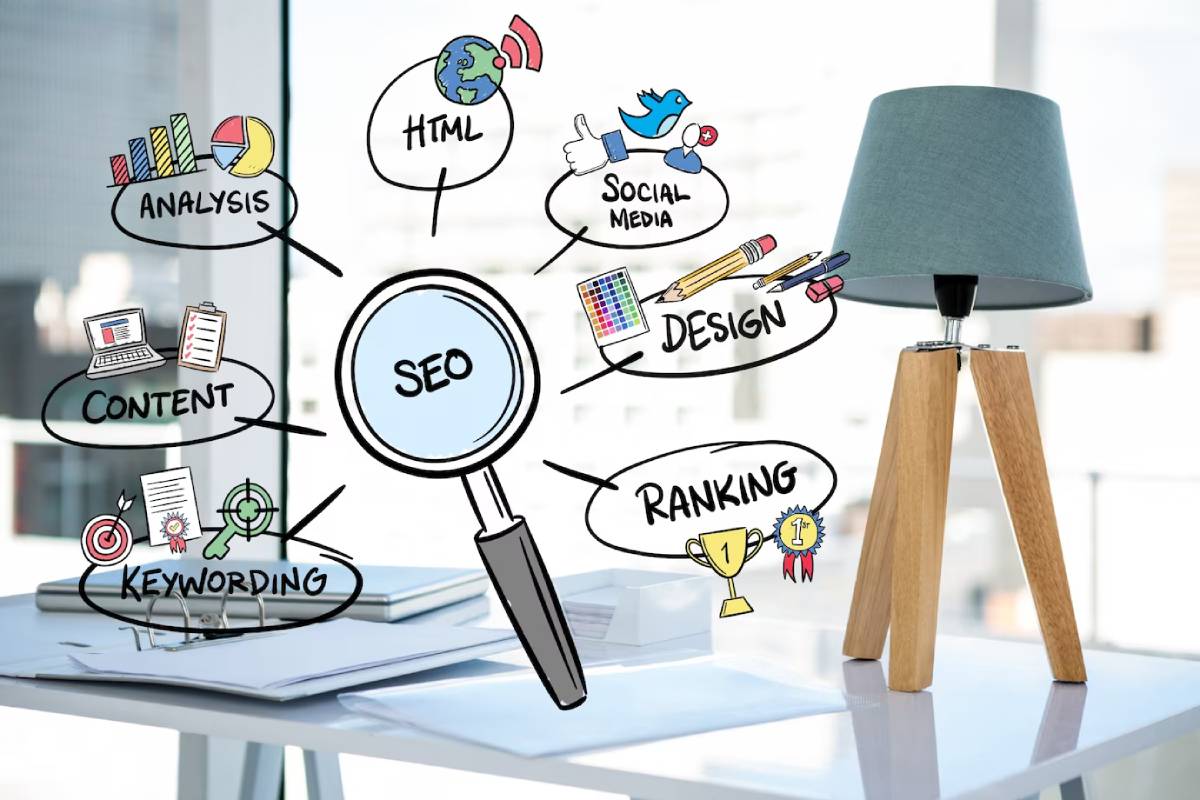
AI Tools for SEO Optimisation in E-commerce
AI stands out because it can learn, adapt, and perform tasks that used to require human intelligence. AI brings precision and scalability to SEO. It analyzes user behavior and generates content suggestions, areas where traditional methods often fall short. This blog discusses the role of AI in SEO for e-commerce and shows the many benefits these tools offer to businesses that want to stay competitive.
Key Benefits of AI SEO Tools in E-commerce
The importance of AI SEO tools in e-commerce cannot be overstated. As online shopping grows, businesses need to change with consumer habits and expectations. AI-powered SEO tools give you an edge. They provide insights based on data and automate tricky tasks. Here are some key benefits of incorporating AI into your e-commerce SEO strategy:
Enhanced Keyword Research and Analysis

AI SEO tools excel at analysing large data sets. They help you find high-performing keywords for your e-commerce business and can quickly adjust to changes in search trends. Unlike traditional methods, AI keeps your content relevant and competitive.
Some tools take it a step further. They offer semantic keyword clustering, which finds related keywords that match what users are searching for. This technique boosts the depth of your content and leads to better search engine rankings. AI-driven keyword research helps businesses spot trending queries, giving them a first-mover advantage.
Personalised User Experience
AI-powered SEO tools help e-commerce sites create personalized user experiences by analysing user behavior and preferences. This kind of personalisation makes customers happier and helps drive more conversions.
AI can change product recommendations, banners, or landing pages. It does this using real-time user data. Returning customers might see different content than first-time visitors. This change boosts the relevance of each interaction. This personalised approach enhances customer retention and maximises lifetime value.
Improved Content Creation and Optimisation
AI tools help create quality, SEO-friendly content that connects with your audience. AI uses natural language processing (NLP) to grasp context and meaning. This helps make sure your content matches what users want.
Some platforms offer content grading and tips for real-time optimisation. They help improve readability, use long-tail keywords, and keep keyword density just right. This helps content creators write better copy, boosts search rankings, and increases user engagement.
Efficient Competitor Analysis
Understanding your competition is vital in the e-commerce industry. AI SEO tools can quickly analyse competitor strategies, identifying strengths and weaknesses. This info helps businesses improve their strategies. They can take advantage of opportunities and tackle potential threats.
These tools track competitor keyword rankings, backlink profiles, and content performance on different platforms. Automating this research helps businesses quickly compare themselves to competitors. Businesses can improve their strategies and find market gaps to boost SEO.
Automation of Repetitive Tasks
A key benefit of AI in SEO is automation. It handles repetitive tasks, saving time and resources. AI tools can manage tasks like data analysis, reporting, and keyword tracking, letting businesses focus on strategy and creativity.
AI can automate tasks. It can generate meta tags, create image alt text, and link audits. This helps cover all SEO areas without needing a lot of manual work. This streamlining boosts operational efficiency. It also makes sure SEO efforts are thorough and free of errors.
Additional Expert Tips & Common Mistakes to Avoid
AI SEO tools have many benefits, but using them wisely is essential. Here are expert tips and common mistakes to avoid when adding AI to your e-commerce SEO strategy:
Best Practices for Implementing AI SEO Tools
- Set Clear Goals: Before using AI tools, decide what you want to accomplish. Setting clear goals helps improve search rankings, boost traffic, and enhance user experience. These goals will guide your strategy and help measure success.
- Choose the Right Tools: Not all AI SEO tools are created equal—research and select tools that align with your specific needs and budget. Consider scalability, ease of use, and how well they integrate with your current systems.
- Monitor and Adjust: AI tools are not a set-and-forget solution. Regularly monitor performance metrics and adjust strategies as needed. Ongoing optimisation keeps your SEO efforts strong and in line with market changes.
- Teach Your Team: Make sure your marketing team knows how to use AI tools well. Training boosts the tools’ potential. It also encourages teamwork between AI systems and human creativity.
Common Mistakes to Avoid
- Over-Reliance on Automation: Automation is helpful, but too much can lead to laziness. Human oversight is key. It helps ensure AI insights are understood right and match business goals.
- Ignoring Quality Content: AI can assist with writing, but it can’t replace top-notch, valuable content. Ensure your content remains informative, engaging, and relevant to your audience.
- Ignoring User Experience:
- Ignoring User Experience: SEO isn’t only for search engines. It focuses on providing a smooth user experience. Ensure your website is user-friendly, mobile-responsive, and provides a smooth navigation experience.
- Check AI Recommendations: Always compare AI suggestions with real business insights. Also, use A/B tests to ensure they work.
Advanced Insights and Expert Recommendations
To boost your e-commerce SEO strategy, check out these expert tips and insights:
Utilising AI for Predictive Analytics
AI can predict trends and consumer behaviours, helping businesses adjust their strategies ahead of time. AI tools can analyze past data to predict future search trends, helping businesses stay ahead and effectively meet consumer needs.
This foresight can influence everything from content planning to inventory management. If AI sees more searches for a product category, businesses can launch targeted campaigns or adjust their stock.
Integrating AI with Other Technologies
Think about using AI SEO tools alongside other technologies. These include machine learning, big data analytics, and CRM systems. This integration gives you a complete view of your business, helping you make better decisions and boost overall performance.
This synergy helps SEO insights guide broader marketing efforts. It ensures that email, paid ads, and social media campaigns work well together. AI-enhanced CRMs can also track how SEO efforts affect customer acquisition and retention.
Focusing on Voice Search Optimisation

Voice-activated devices are on the rise. So, it’s crucial to optimise for voice search now. AI tools can spot voice search patterns. They help adjust your content to keep your e-commerce site easy to find. This way, users who use voice search can access it easily.
Voice searches are often longer and more conversational than typed queries. AI can analyse these details and help you create content that fits voice search language. This can boost your chances of appearing in voice search results.
Conclusion: AI Tools for SEO Optimisation in E-commerce
AI tools for SEO in e-commerce are a significant change for businesses. They help companies succeed in the digital world. E-commerce platforms can use AI in several ways. It can help boost SEO, improve user experiences, and increase sales, leading to overall business growth. As AI technology grows, companies that use these tools will lead in a competitive market.
To lead in e-commerce, consider adding AI SEO tools to your strategy now. Review your current processes. Find areas to improve. Check out AI solutions that fit your business goals. Act now to keep your e-commerce platform competitive in today’s fast-changing digital world.